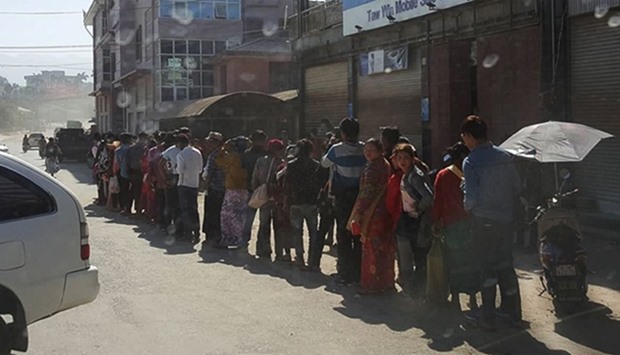The violence is a fresh blow to de facto leader Aung San Suu Kyi's hopes of forging a nationwide peace agreement after decades of bloody insurgencies in Myanmar's borderlands.
Locals near the Chinese border in Myanmar's northern state of Shan said they were fleeing heavy fighting between the army and four armed ethnic groups, including the powerful Kachin Independence Army.
Suu Kyi's office on Tuesday said 10 people had been killed near the border town of Muse, a hotbed of smuggling, over three days.
That included three police, two pro-government militia members and five civilians including two women. A soldier reported dead on Sunday was not accounted for.
A total of 33 people have been injured in the fighting, the office said in a statement.
‘People dare not go outside,’ town resident Aye Aye told AFP. ‘We are frightened. We are thinking of going to China if the situation gets worse.’
Chinese state media said its military had been placed on high alert after one of its nationals was injured by a stray shell from across the border. Foreign ministry spokesman Geng Shuang said thousands had already crossed the border fleeing the fighting.
‘About 3,000 Myanmar border citizens have entered China to avoid warfare,’ he told a press briefing.
‘Out of humanitarian considerations, the Chinese local governments offered them proper settlement and brought the injured to hospital for treatment.’
Suu Kyi has made dealing with the simmering unrest in Myanmar's border regions a priority of her elected government since it took power seven months ago.
But fighting in the northern states of Kachin and Shan, and in the south in Karen, have cast a pall over her efforts and any ceasefire is expected to take years.
In the western state of Rakhine more than 30,000 people have been displaced and at least 70 killed under a military lockdown in the north of the state, an area home to the Muslim Rohingya minority.

